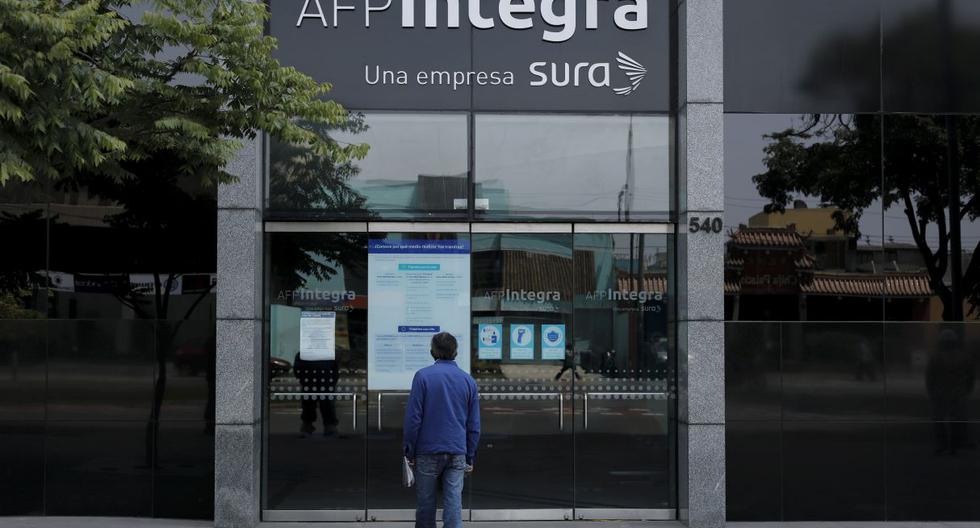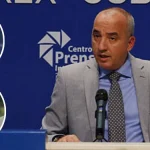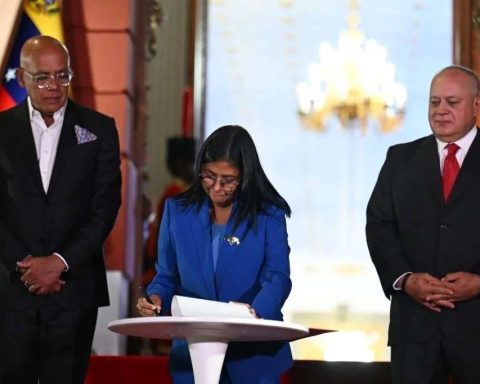Is a new withdrawal of AFP funds coming? The Committee on the Economy, Banking, Finance and Financial Intelligence of Congress has given the green light to the ruling that allows members of the AFPs to withdraw part of their pension fund again. What is it about? What is the way for it to become law? Which are the positions against?
MORE INFORMATION: How much money do you have in your pension fund?
The proposal of the legislative working group was approved on Tuesday, April 12, with 9 votes in favor, one against and two abstentions. The document derives from seven bills that propose the withdrawal of funds to promote economic reactivation, although, on the other hand, they warn that the measure is counterproductive.
If the rule is approved in the plenary session of Congress, it will be the sixth withdrawal of AFP funds, since the first approved in 2020, as a mechanism to alleviate the coronavirus pandemic.
WHAT DID THE ECONOMY COMMISSION APPROVED REGARDING THE WITHDRAWAL OF FUNDS FROM THE AFP?
The Commission of Economy, Banking, Finance and Financial Intelligence of Congress approved on April 12 the opinion that authorizes AFP affiliates to withdraw up to 4 tax units (UIT) from their pension fund, which is equivalent to S / 18,400 .
If the measure is approved, the disbursement would be made in three parts and every 30 days, as was done in the 2020 and 2021 withdrawals.
WHAT IS MISSING SO THAT THE NEW WITHDRAWAL OF FUNDS FROM THE AFP BECOMES LAW?
The next steps to seek approval of the measure that would allow a new withdrawal of funds, due to the Easter holidays and the week of representation, would only begin to be seen, at least within ten days.
- In accordance with article 70 of the regulations of Congressmajority opinions need to be signed by at least the majority of parliamentarians present at the time of the vote and by the members who decide to sign them later, even before being considered by the board of directors.
- The document must be delivered to the Board of Spokespersons for the opinion to be included in the plenary session of Congress.
- The opinion must be published on the Congress website, in its gazette or in the Official Gazette A Peruvian man. What essential requirement for its debate in the plenary session of Parliament. It must be done at least 7 days before the debate in plenary session, unless the Board of Spokespersons waives the term with the favorable vote of three-fifths of its members.
- Already included in the plenary agenda, the opinion must be submitted for debate and vote. For its approval, it needs the votes in favor of 50% + 1 of the congressmen.
- Then a second vote should be called, but congressmen can request exemption from that procedure.
- Once approved, the autograph of the approved law must be sent to the President of the Republic for promulgation within a period of 15 working days. If he has no observations, the President of the Republic promulgates the law, ordering its publication in the Official Gazette El Peruano.
What happens if the Executive observes the legislative project?
- If the executive presents any observations on the proposal approved by Congress, it has 15 days to submit them to Congress.
- If the term of 15 days has elapsed, the President of the Republic does not promulgate the bill sent, it is promulgated by the presidency of Congress.
FROM WHEN WOULD IT BECOME LAW IF THE NEW WITHDRAWAL OF FUNDS FROM THE AFP IS APPROVED?
The new withdrawal of contributions to the AFPs would become a law from the day after its publication in the Official Gazette A Peruvian manexcept for a different provision of the same law that establishes a longer period of legal vacancy in whole or in part.
WHAT IS THE POSITION OF THE AFP ASSOCIATION ON THE SIXTH WITHDRAWAL OF PRIVATE PENSION FUNDS?
For the Association of AFPs These withdrawals will not benefit the most vulnerable: they do not participate in the Private Pension System (SPP). On the contrary, they will harm them, since the immense amount of liquidity that will flood the market with withdrawals will directly translate into a significant increase in prices.
Through a statement, he highlighted that all the technical bodies (SBS, MEF, BCRP) have spoken out against the withdrawals more than once. “These will contribute to the destabilization of the country’s economy, increasing inflation and putting the poorest in a worse situation,” he says.
He adds that “risk rating agencies have indicated that one of the reasons why they have lowered Peru’s rating is the withdrawal of funds from the AFPs. This reduction will make the credits for all Peruvians more expensive and everything will cost more.”
He also regrets that none of the retirement laws have proposed who will take care of the affiliates when the moment of retirement arrives and they do not have pensions.
WHAT DOES THE SBS THINK ABOUT THE EVENTUAL NEW WITHDRAWAL OF FUNDS FROM THE AFP?
The Superintendency of Banking, Insurance and AFPs (SBS) expressed its disagreement with Bill No. 1619/2021-CR. He indicated that allowing the early withdrawal of funds saved for old age would be counterproductive for the coverage of social risks that the system safeguards (old age, disability and death protection).
He underlines that it is important to bear in mind that the measures on early retirement affect the construction of a pension, which, without a doubt, undermines the protection for old age, which is to protect workers when they retire.
HOW MUCH MONEY HAS ALREADY BEEN WITHDRAWN FROM AFP FUNDS?
The deputy superintendent of the AFP of the SBS, Elio Sánchez, pointed out that the contributors to the Private Pension System withdrew almost S / 66,000 million, with the five regulations issued to face the impact of the covid-19 pandemic. He stated that 45% of the amount withdrawn has been made by people who were working.

















